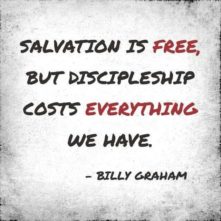
Shownotes
Wisdom-Trek / Creating a Legacy
Welcome to Day 1186 of our Wisdom-Trek, and thank you for joining me.
I am Guthrie Chamberlain, Your Guide to Wisdom
What Is Discipleship? – Worldview Wednesday

Wisdom – the final frontier to true knowledge. Welcome to Wisdom-Trek where our mission is to create a legacy of wisdom, to seek out discernment and insights, and to boldly grow where few have chosen to grow before.
Hello, my friend, I am Guthrie Chamberlain, your captain on our journey to increase wisdom and create a living legacy. Thank you for joining us today as we explore wisdom on our 2nd millennium of podcasts. This is Day 1186 of our trek, and it is Worldview Wednesday. Creating a Biblical Worldview is important to have a proper perspective on today’s current events.
To establish a Biblical worldview, you must also have a proper understanding of God and His word. On our Worldview Wednesday episodes we are in a series in which we are covering another detailed review of a book from one of today’s most prominent Hebrew Scholars Dr. Micheal S. Heiser. We are taking a deep dive and will share Dr. Heiser’s insights into the question, which is also the title of his book “What Does God Want?”
What Is Discipleship?

The gospel is intended to be transformative. Anyone who has embraced the gospel has been transformed according to 2 Corinthians 5:17, “This means that anyone who belongs to Christ has become a new person. The old life is gone; a new life has begun!” What does that actually look like? You may recall the answer to this question. Earlier I said that a disciple was a follower—specifically a follower of Jesus. I defined “following” as imitating or imaging Jesus. Being “he choose them to become like his Son” is our ultimate destiny (Roman [8:29]; 2 Corinthians [3:18]; Colossians [3:10]).
Our motive for imitating Jesus is not to make God love us so he’ll let us into heaven. God already loved each of us “while we were still sinners” (Romans 5:8) and were God’s “while we were still his enemies” (Romans [5:10]).
We get to heaven—we become part of God s family—when we believe the gospel. On our own, we are lost, in need of a Savior (Luke [19:10]), alienated from God (Ephesians [4:18]). When that was our situation, God loved us. He didn’t wait until we cleaned up our act to love us.
Our motive for imitating Jesus is also not to keep God loving us so we’ll be saved in the end. That which cannot be achieved by performance cannot be lost by performance. Salvation has nothing to do with our own worth or merit. It has everything to do with what someone—Jesus—did for us as we are told in 2 Corinthians 5:21, “For God made Christ, who never sinned, to be the offering for our sin, so that we could be made right with God through Christ.” We can take no credit for salvation. Jesus gets all the credit.

That is why it is important that we are thinking clearly about discipleship. We need to think carefully about how all that applies to discipleship. Because of the performance trap I talked about earlier, we need to have a clear grasp of the fact that salvation and discipleship are not the same thing. Many believers unconsciously begin to add their own works or performance to the gospel because of guilt for their sin. The result is spiritual bondage, not the rich and satisfying life Jesus wants us to have (John [10:10]; 2 Corinthians 1:5; Ephesians [3:20]).
Salvation is a gift given to us by God when we believe the gospel. It is undeserved. Nevertheless, God offers it to us despite our sin and hostility toward him. Discipleship is something we do as a result of believing the gospel. We imitate Jesus to show our love for him and for God. Jesus was the ultimate imager of God, so we want to live the same way as Jesus did.
There are a lot of reasons to live like Jesus—to live a holy life. Earning God’s love isn’t one of them. Salvation doesn’t cost us anything; it’s free for all who believe the gospel. Discipleship, however, does cost us something. Following Jesus is often not easy. Being a disciple requires making choices—to love and honor God, to treat people for what they are—fellow imagers of God that he loves and wants to bring into his family through the gospel.
Think about Jesus’s own life. It wasn’t easy. As the Bible says in 1 Peter 2:21,“For God called you to do good, even if it means suffering, just as Christ suffered for you. He is your example, and you must follow in his steps.” Jesus lived a life of sacrifice. He put God first, followed by his “neighbor” (everyone else) as in Matthew 22:26-40, “‘Teacher, which is the most important commandment in the law of Moses?’ Jesus replied, ‘You must love the Lord your God with all your heart, all your soul, and all your mind. This is the first and greatest commandment. A second is equally important: Love your neighbor as yourself. The entire law and all the demands of the prophets are based on these two commandments.’”
Jesus lived this way not so God would love him or be happy with him. God loved Jesus already, long before he ever came and “did works” (performed) to fulfill the covenant. He loved Jesus based on His own words in John 17:24,“Father, I want these whom you have given me to be with me where I am. Then they can see all the glory you gave me because you loved me even before the world began!”
Following Jesus can be hard. Since no believer is like Jesus when they first believe—and since it’s just hard to live like Jesus consistently—every disciple needs to have a change of heart (what the Bible calls “repentance”) about his behavior. I know I did. There were things I had to stop doing, and things I had to start doing. But none of that was to make God love me. He already loved me.
Jesus did what he did because he loved God. So must we. Jesus lived a certain way to help others believe in him and God’s plan. So must we. Jesus knew why he was on earth—how he would die a horrible death on our behalf. But he also trusted God’s plan and power. He would rise from the dead and be with his Father once more.
We must have the same eternal perspective. This world isn’t our real home. It’s temporary. The next one is permanent. Because of what Jesus did, we will inherit everlasting life in that world, leaving this one behind. The goal of our lives should be to show our loyalty and gratitude to the one who saved us and help others enter God’s family.

What if we fail? What if we sin? We will do both. God knows that. He knows humans pretty well! He knows who we are. But he already loved us before we had the slightest interest in doing anything to love him back. He loved us when we were his enemies—“while we were still sinners” (Romans 5:8).
God loved us before we were in his family. Why would he love us less, or stop loving us, now that we are in his family? When we sin and fail, He forgives us. He wants us to believe that and get back to imitating Jesus.
That will conclude our lesson for this week from Dr. Heiser’s book “What Does God Want?” Next Worldview Wednesday, we will answering the question “Why Live Like Jesus?” I believe you will find each Worldview Wednesday an interesting topic to consider as we build our Biblical worldview.
Tomorrow we will continue with our 3-minute humor nugget that will provide you with a bit of cheer which will help you to lighten up and live a rich and satisfying life. So encourage your friends and family to join us and then come along with us tomorrow for another day of our Wisdom-Trek, Creating a Legacy.

If you would like to listen to any of our past 1185 treks or read the Wisdom Journal, they are available at Wisdom-Trek.com. I encourage you to subscribe to Wisdom-Trek on your favorite podcast player so that each day’s trek will be downloaded automatically.
Thank you for allowing me to be your guide, mentor, and most importantly, your friend as I serve you through the Wisdom-Trek podcast and journal.
As we take this trek together, let us always:
- Live Abundantly (Fully)
- Love Unconditionally
- Listen Intentionally
- Learn Continuously
- Lend to others Generously
- Lead with Integrity
- Leave a Living Legacy Each Day
I am Guthrie Chamberlain reminding you to Keep Moving Forward, Enjoy Your Journey, and Create a Great Day Everyday! See you tomorrow!